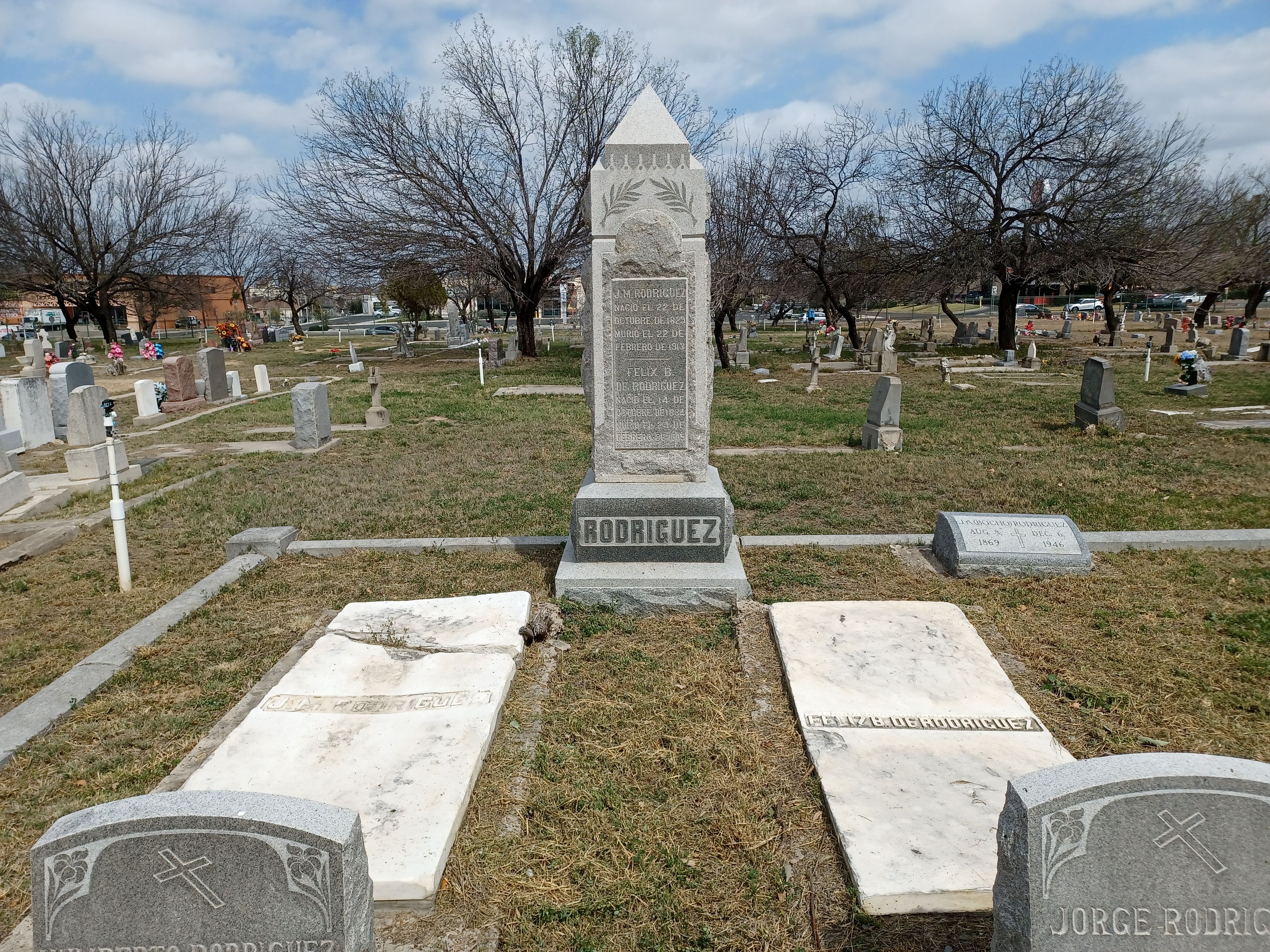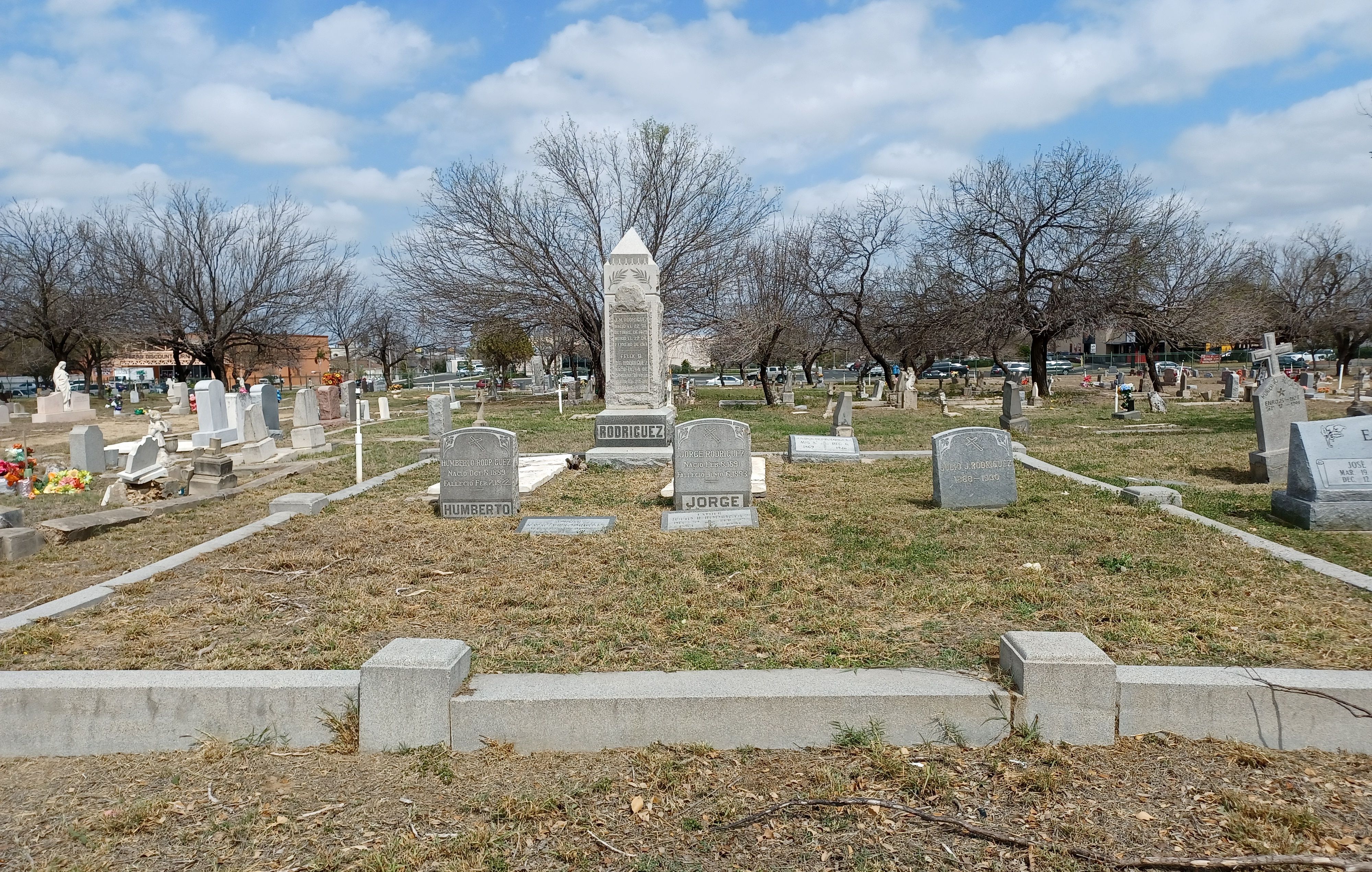About 1861 he moved to Laredo as a schoolteacher. He studied law and began his practice in 1864. He also served as county clerk for four years during the 1860s. In 1879 Rodríguez was elected county judge of Webb County, Texas, a position he held for thirty-five years. Not only was he was a politician and attorney, but he was also a prosperous cattle rancher and trader. Throughout his life Rodríguez was seen as a public-spirited man who influenced the politics and daily life of San Antonio and Laredo.
He married Feliz Benavides around 1861, and they had two children. He was a Democrat and a Catholic. Rodríguez died in Laredo on February 22, 1913. His book Memoirs of Early Texas was published the year of his death.
(Re: Excerpts courtesy of "The Handbook of Texas Online". Jose's memoirs can be read at www.tamu.edu/ccbn/dewitt/rodmemoirs.htm)
About 1861 he moved to Laredo as a schoolteacher. He studied law and began his practice in 1864. He also served as county clerk for four years during the 1860s. In 1879 Rodríguez was elected county judge of Webb County, Texas, a position he held for thirty-five years. Not only was he was a politician and attorney, but he was also a prosperous cattle rancher and trader. Throughout his life Rodríguez was seen as a public-spirited man who influenced the politics and daily life of San Antonio and Laredo.
He married Feliz Benavides around 1861, and they had two children. He was a Democrat and a Catholic. Rodríguez died in Laredo on February 22, 1913. His book Memoirs of Early Texas was published the year of his death.
(Re: Excerpts courtesy of "The Handbook of Texas Online". Jose's memoirs can be read at www.tamu.edu/ccbn/dewitt/rodmemoirs.htm)
Family Members
Sponsored by Ancestry
Advertisement
Explore more
Sponsored by Ancestry
Advertisement










